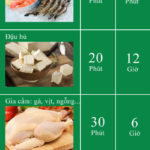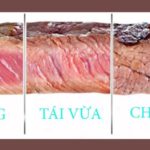Salt-Rich Foods
Consuming foods high in salt, such as pickles, instant noodles, and processed meats, leads to a significant intake of sodium. This excess sodium contributes to calcium deficiency and bone aging.
For every 100 grams of sodium ingested, 26 mg of calcium is excreted. The more sodium we consume, the more calcium our bodies lose.
Foods High in Fat
While fat is an essential component of a healthy diet, excessive consumption of fatty foods can hinder calcium absorption and lead to long-term bone health issues such as osteoporosis.
A balanced diet is key, ensuring we get enough fat without overindulging.

Foods high in salt and fat can increase the excretion of calcium from the body.
Carbonated Soft Drinks
Soft drinks often contain high levels of phosphoric acid, which combines with calcium to form insoluble precipitates or solid calcium salts. This process inhibits calcium absorption and, over time, reduces bone calcium levels, increasing the risk of osteoporosis.
Coffee
While coffee is a beloved beverage that boosts alertness and clarity due to its caffeine content, this very same compound hinders calcium absorption in the gut and increases calcium excretion. Enjoy coffee in moderation to maintain bone health.
Red Meat
Red meat provides valuable protein, fat, vitamins, and minerals. However, excessive consumption contributes to chronic inflammation and directly impacts bone loss. Research indicates that those who consume more meat and animal protein tend to have lower bone density than those favoring plant-based diets.
Red meats, such as beef, are rich in iron, protein, and fat but can hinder calcium absorption, increasing calcium excretion through urine.
Alcoholic Beverages
Alcoholic drinks can increase calcium excretion, reducing bone density and increasing the risk of fractures. They also slow down the healing process for bone injuries. If you choose to drink alcohol, it’s best to limit your intake to one or two drinks per day.
The Ultimate Guide to Choosing the Best Meat: Secrets Your Butcher Doesn’t Want You to Know
“Choosing the best cuts of meat can be a daunting task for any home cook. But fear not, as we unveil the secrets to selecting the perfect meat. With our expert tips and tricks, you’ll be a master meat connoisseur in no time. Join us on this culinary journey as we explore the art of meat selection and take your cooking skills to the next level!”
Mastering the Art of Marinating: The Ultimate Guide to Perfectly Flavored Meat, Fish, and Tofu
It’s a common misconception that marinating food for longer always yields better results. In reality, the optimal marination time varies depending on the type of food. For protein-rich foods like beef and lamb, a longer marination time can indeed enhance flavor and tenderness. However, for seafood such as shrimp and fish, a shorter marination period of 15 to 30 minutes is recommended.
Is the Red Liquid Oozing Out of My Steak Blood?
Steak au poivre is a French culinary masterpiece, a dish that tantalizes the taste buds with its unique combination of seared beef, a hint of frying, and a symphony of spices including oil, fat, and the subtle sweetness of onions. However, a question that often arises when indulging in this delicacy is whether the red liquid that escapes from the meat is blood. Join us as we demystify this culinary conundrum and explore the true nature of this savory essence.






































